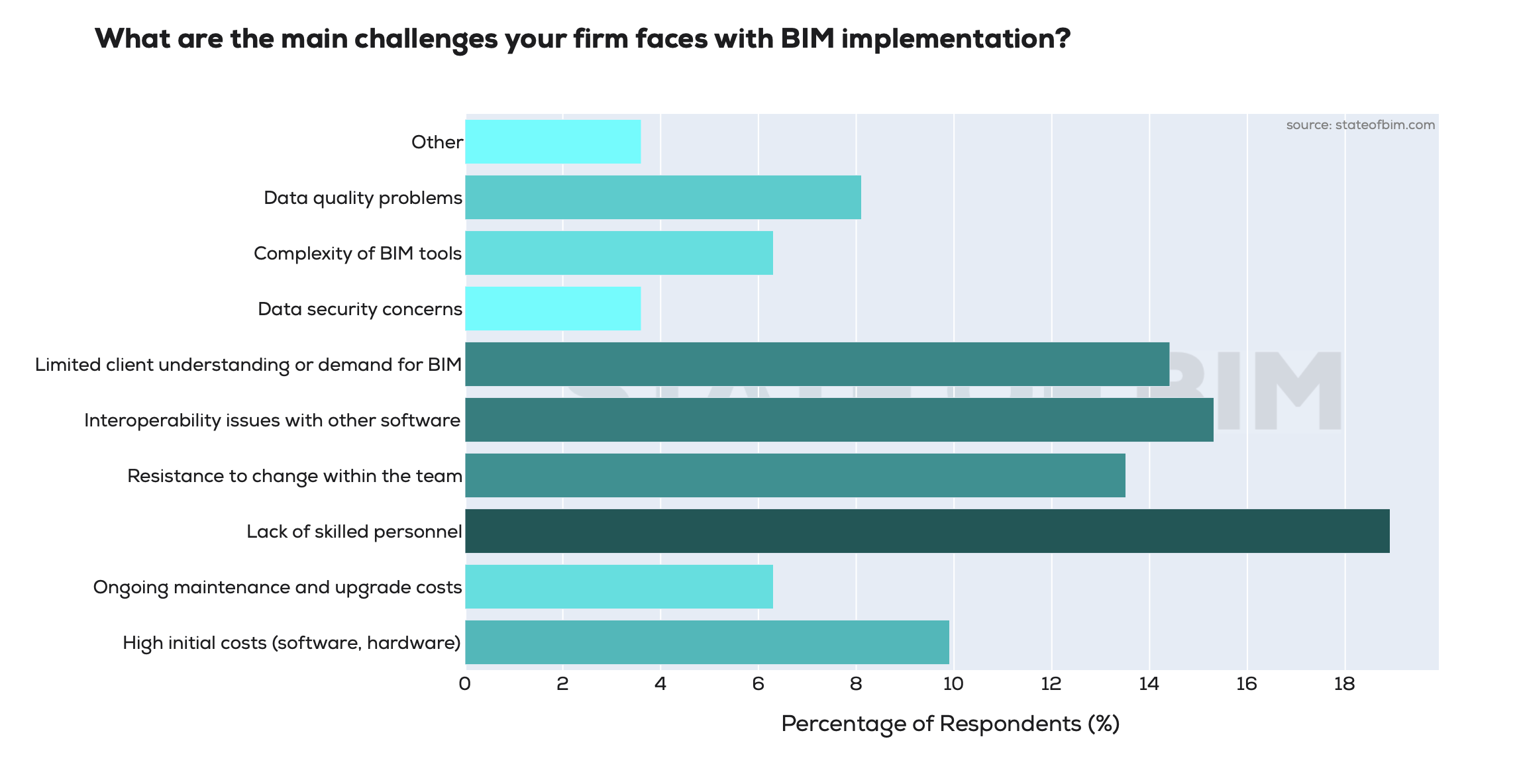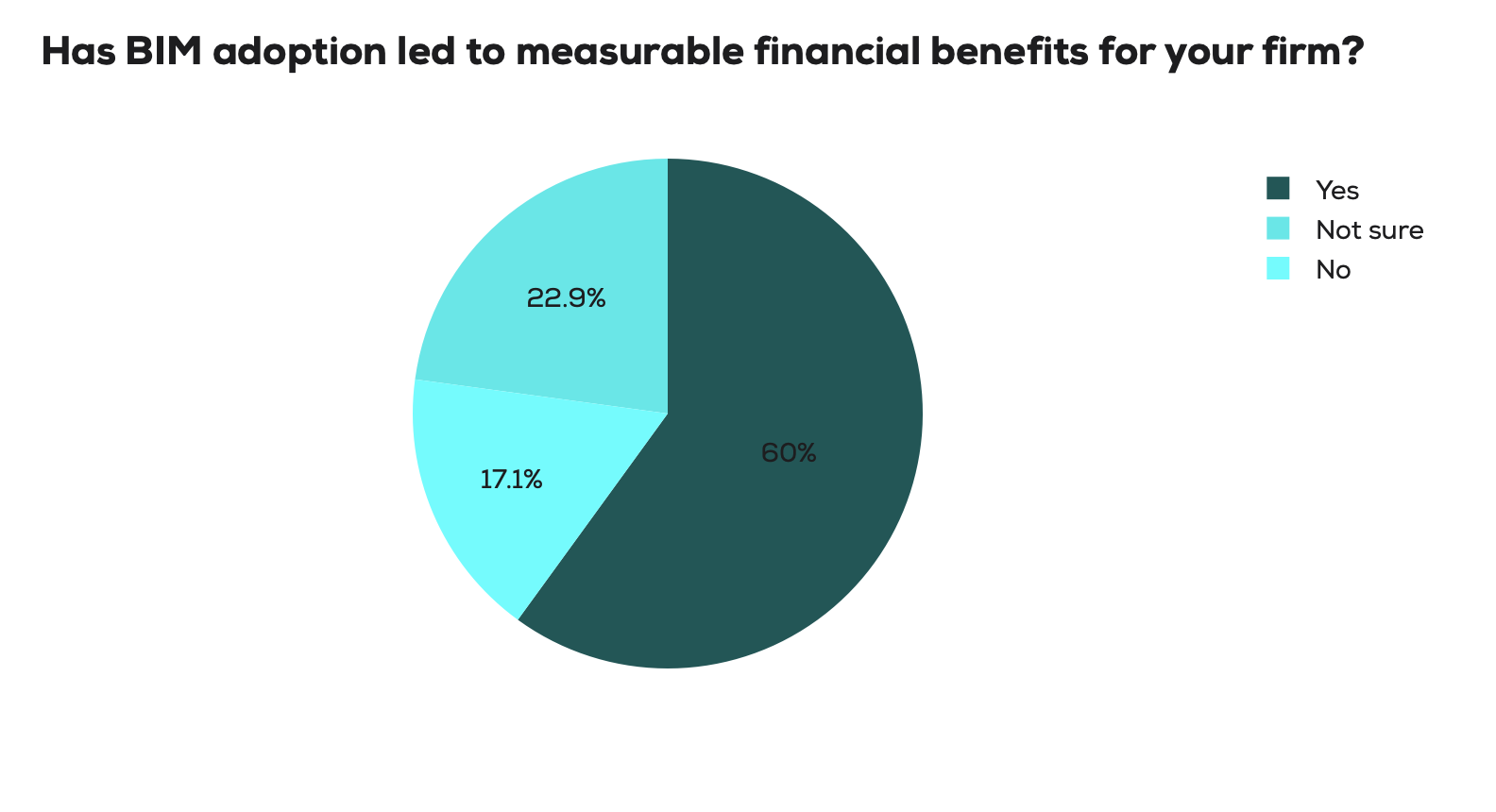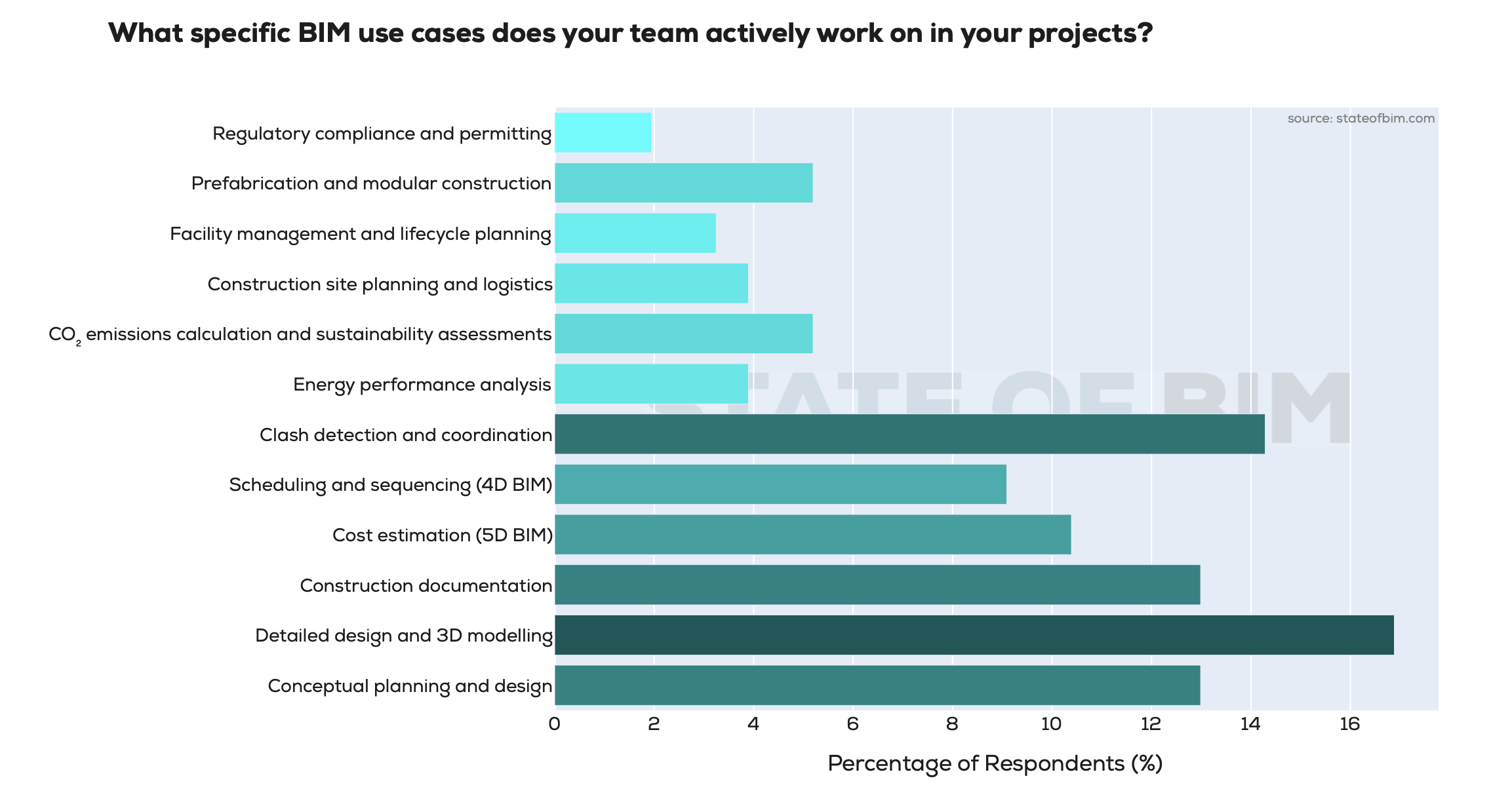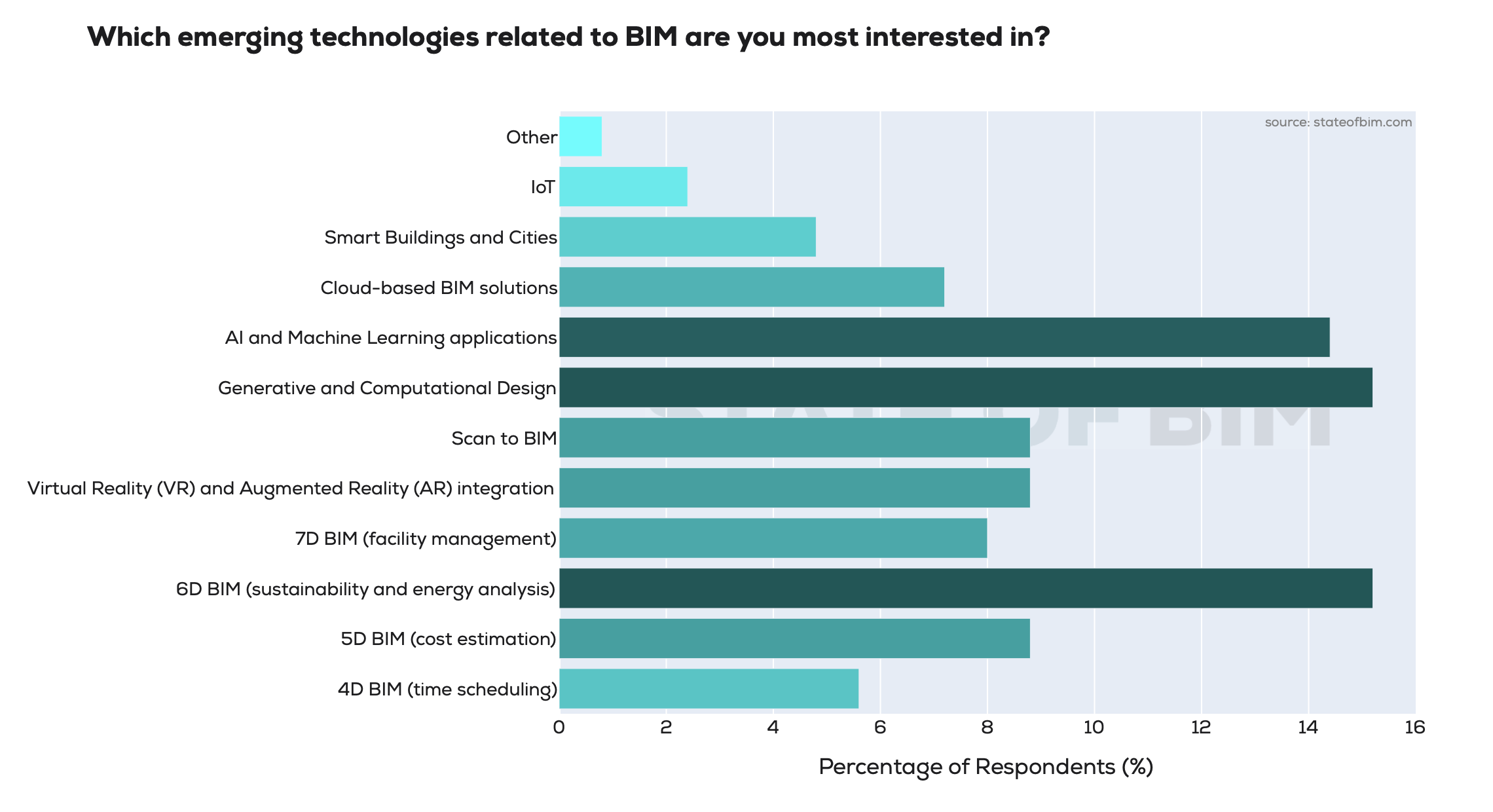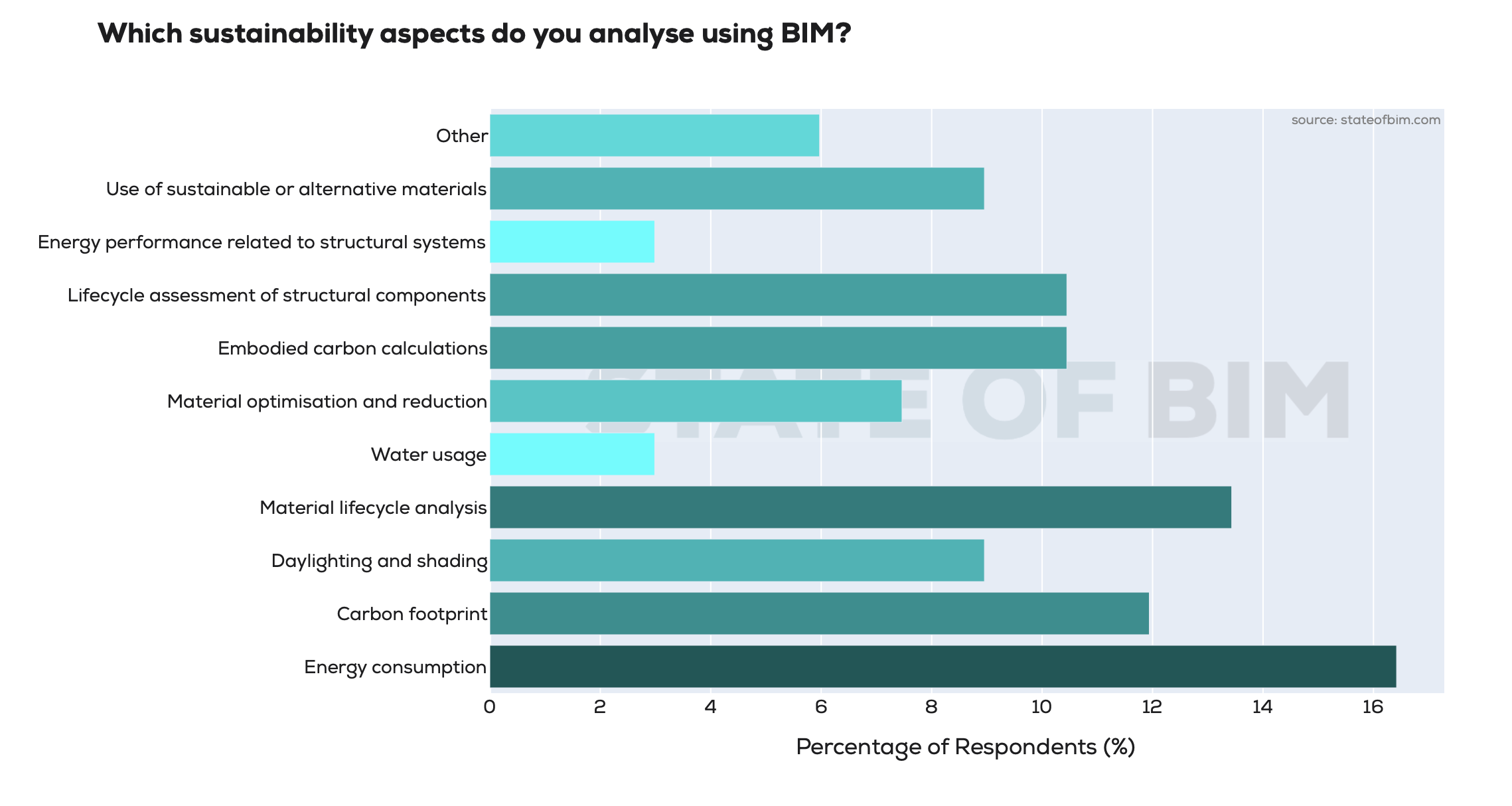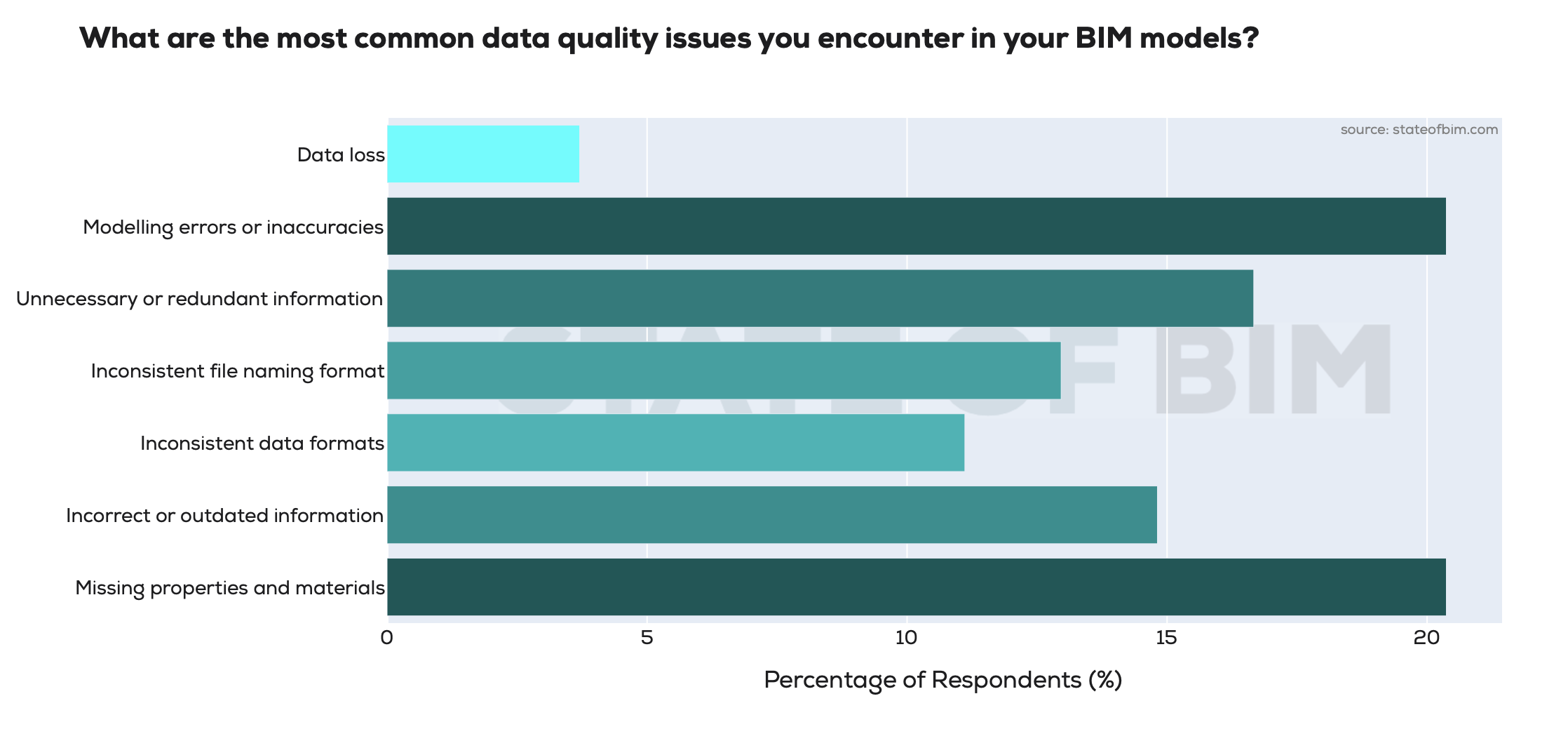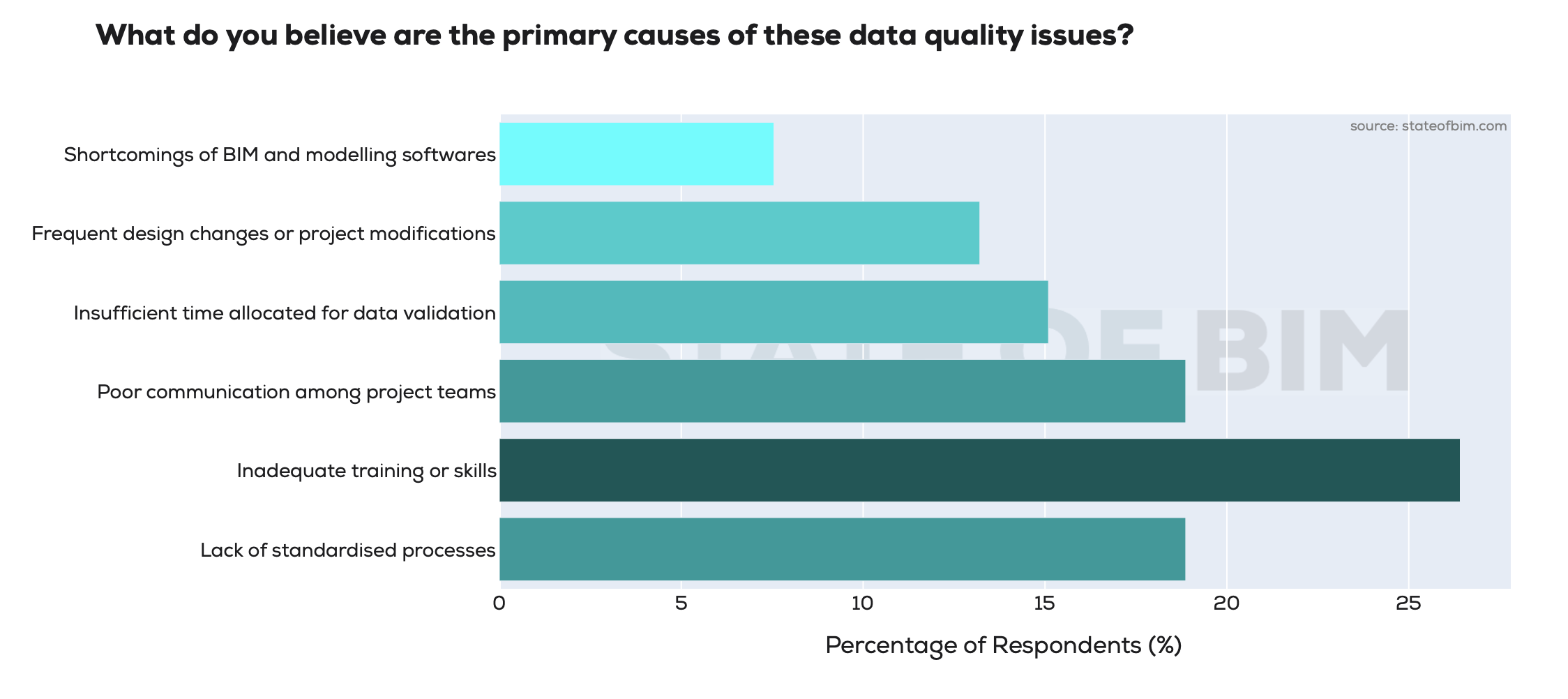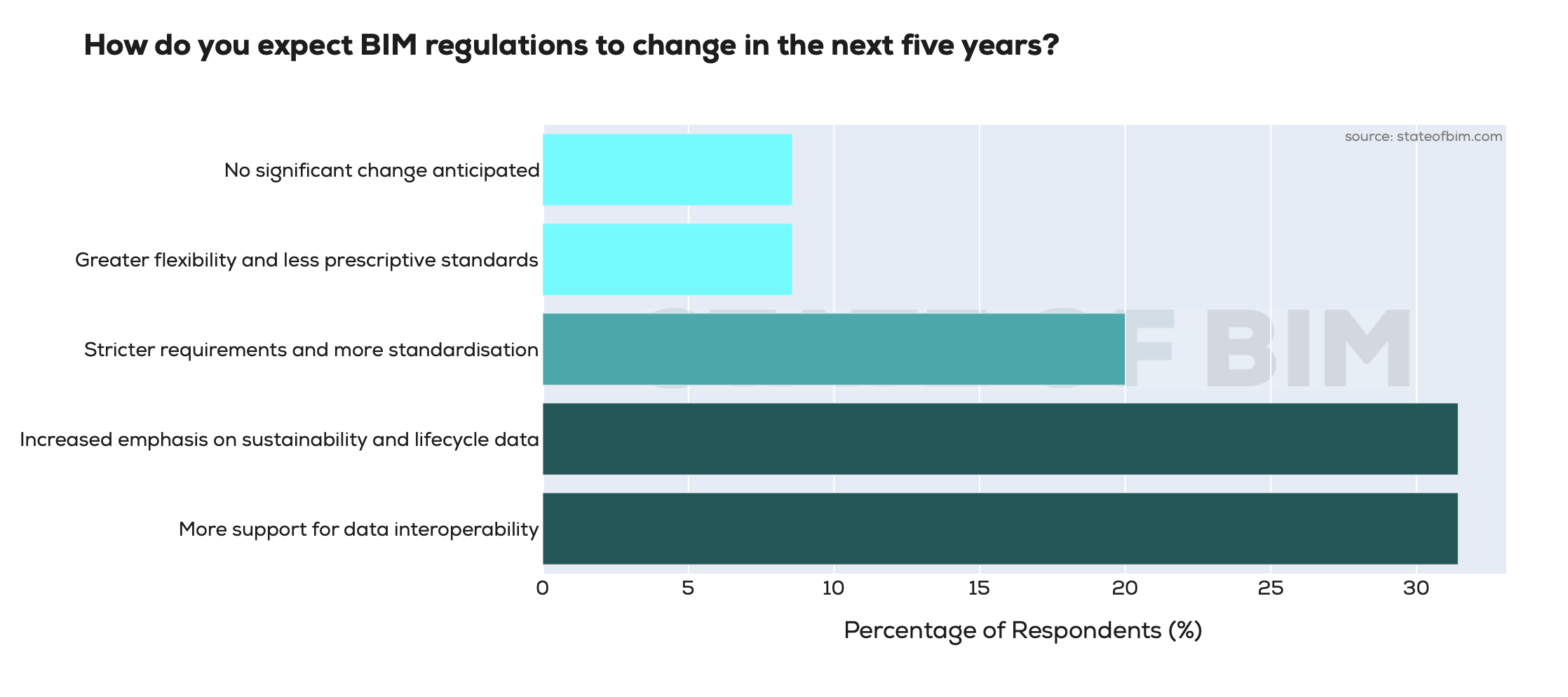Ask ten professionals what BIM is, and you’ll likely get ten different answers.
For some, it’s a digital modelling tool. For others, a coordination platform, a collaborative process, a compliance requirement—or even a philosophy for how projects should be delivered.
Despite over two decades of progress, BIM remains fragmented. Adoption varies not only by region or sector but also within organisations themselves—where some teams lead with sophisticated digital workflows, and others still rely on 2D drawings and disconnected data.
This report is not intended to provide definitive answers, but rather to spark conversation.
Ultimately, the State of BIM is not just a snapshot—it’s a reflection of a movement in motion. And it is our hope that this initiative will grow in depth and reach in future editions. If you believe in the importance of understanding BIM’s real-world application—beyond the buzzwords—we invite you to be part of that journey.
You can dive into the State of BIM 2024 results in two formats:
- Interactive Dashboard: Explore the survey findings through dynamic, filterable charts—perfect for quick insights and deep dives.
- Full PDF Report: A comprehensive, structured summary including detailed commentary, context, and strategic analysis across all key topics.
Purchasing the full report helps us keep the State of BIM initiative independent and accessible. Your support enables us to reach more professionals, grow the survey’s impact, and deliver even broader insights in the upcoming 2025 edition.

